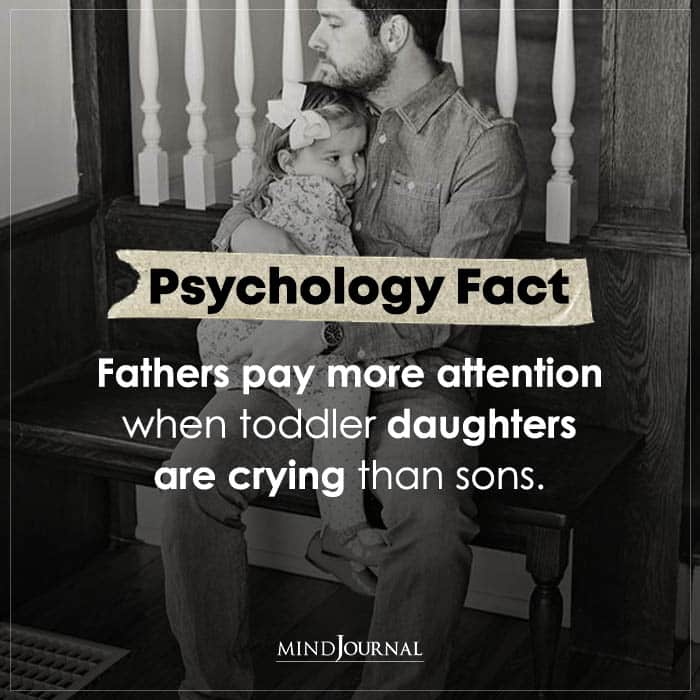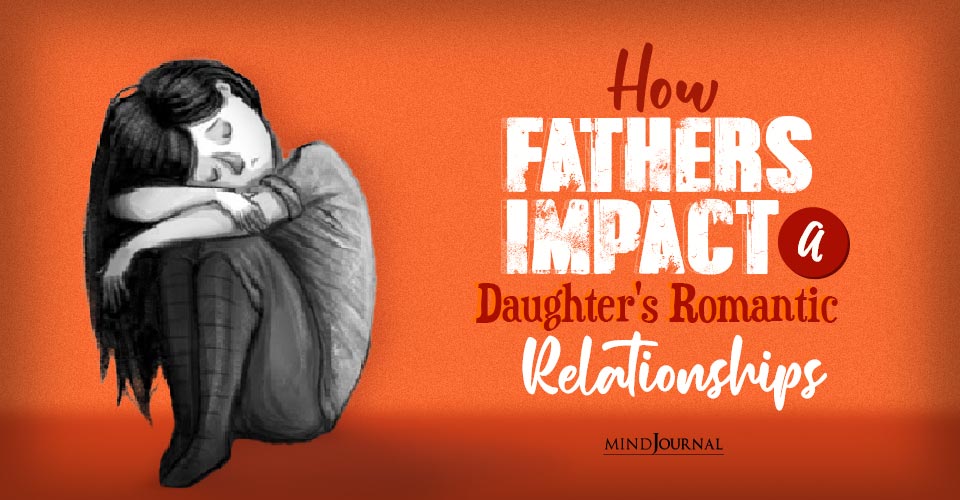You may not know this, or maybe haven’t realized this, but unresolved ‘daddy issues’ can heavily impact a a woman’s romantic relationships.
If you’re struggling with love or repeating unhealthy patterns in relationships, it would serve you well to explore your specific relationship with perhaps the most influential man in your romantic life — your father.
Some of you reading this have been lucky. You’ve had an overall positive relationship with your father. He was reliable, consistent, and stable, someone you could count on and talk to with ease and who gave you the sense of security you need.
Other women have not been as fortunate. Perhaps their dad was an addict, had trouble holding down a job, was cold and distant, was overly controlling, or completely abandoned their family.
So while the term “daddy issues” may be somewhat condescending, whether you consider your father a “good” or “bad” dad, there is no denying the impact he has on your choice in partners, expectations of a relationship, and views about love.
Research increasingly supports the idea that the father daughter relationship is unique and vital to your well-being.

Here are 5 ways fathers impact their daughters romantic relationships
Plus what to do if “daddy issues” are affecting yours.
1. Having a present and supportive father is critical to later forming healthy attachments in relationships as an adult.
A father showing up for his daughter, as well as for his spouse, fosters hope and a positive outlook on romantic relationships. Seeing their father’s responsiveness and presence helps girls learn about the need for support, trust, and closeness in the relationships they will go on to form in their own lives.
Note that the father showing up for both his wife and children is key. Alternatively, an overly-doting father who makes his kids the center of his life and does not prioritize his wife is problematic as well.
Related: A Recent Study Reveals Fathers Have More Influence in A Daughter’s Life Than Mothers
2. A father’s physical absence hurts.
When a father is not present, regardless of the reason, it harms young women. His absence may be due to divorce, abandonment, illness, incarceration, or something else. It might be intentional, as in abandonment, or unintentional, as in the case of illness or death.
Women who grew up with a physically absent father may be less trusting of others. They may also feel more uncertainty about what to expect in healthy romantic relationships. It’s hard to know what’s acceptable or unacceptable treatment from a man when you haven’t experienced any treatment from your father at all.
In cases of intentional abandonment, in particular, a woman may be left with a deep-seated fear about whether or not she is lovable, worthy, or “good enough” for anyone.
3. A father’s emotional absense also hurts.
You may see your father a lot, but feel disconnected or detached. Women who grew up with an emotionally unavailable father will often choose emotionally unavailable partners. They tend to feel less secure and more dissatisfied in their relationships.
A father’s emotional absence might stem from his substance abuse, an “avoidant” attachment style, being a workaholic, or any of a number of other reasons. A narcissistic father, for example, will undoubtedly have a troubled connection with his daughter due to his self-centered, hyper-critical nature and lack of empathy.
Related: 15 Positively Influential Advices From Fathers In The Words Of Their Children
4. The way your father treats your mother also has a lasting impact.
What you observed in your parent’s relationship or marriage often helps you to learn what you don’t want and the way you don’t wish to be treated.
If you witnessed many negative interactions between your mother and your father, you may be fearful of repeating their mistakes. Observing emotional or physical abuse, affairs, financial betrayals, and the like during your childhood has a significant impact on your ability to trust in your own relationships.
5. Your father’s communication about sex and love is meaningful.
Most fathers tend to not discuss these topics with their daughters — at all. But fathers who muster the courage to have candid, non-shaming conversations about sex, dating, love, and commitment do their children a tremendous favor from which they reap significant benefits throughout their lives.
For example, a study of female undergraduate students conducted in 2010 found that “paternal responsiveness promoted daughters’ refusals of unwanted sex [and] predicted daughters’ self-worth.” And a 2016 study of sexually active female adolescents found that “greater father involvement is associated with healthier adolescent sexual behaviors” in girls.
Want to know more about how fathers impact their daughters romantic relationships? Check this video out below!
Be mindful of the role your relationship with your father may be having in your own relationships.
Negative experiences, such as having had an emotionally or physically absent father, will frequently have you repeating history in an attempt to re-write it with romantic partners.
You’re likely to choose a similar type of man who gives you a familiar feeling you perceive as “normal.” But comfortable as it might feel, it’s not healthy. You just can’t seem to change the end of the story, no matter how many times you try.
Exploring these early family experiences is essential to help you recognize patterns and blocks in your romantic life. Much focus is often on the mother, yet we can’t ignore your father, who may actually have a more severe impact. Your bond with him and the quality of it has long-lasting and immense consequences on your life.
After looking at your relationship with your father, determine the ways this might be sabotaging your love life.
You are picking, be it consciously or unconsciously, a romantic partner based on characteristics of your father, both in regard to his traits and the way in which you relate to one another.
Approach your relationship with curiosity and self-compassion and ask yourself some important questions.
- Are you choosing someone who is just like your father, or someone who is the opposite of him?
- What serious changes do you need to make in this relationship?
- What does moving forward look like?
- Can you find a way to prevent unproven or irrational beliefs from creating barriers to healthy love?
Whatever your conclusions, know that your life can be different. This “first” bond with your father is not necessarily predestined to affect your relationships forever. Taking responsibility for yourself will foster a different outcome. You can make changes and create a healthy, loving, and secure relationship that lasts.
Written By Marni Feuerman Originally Appeared In YourTango










Leave a Reply